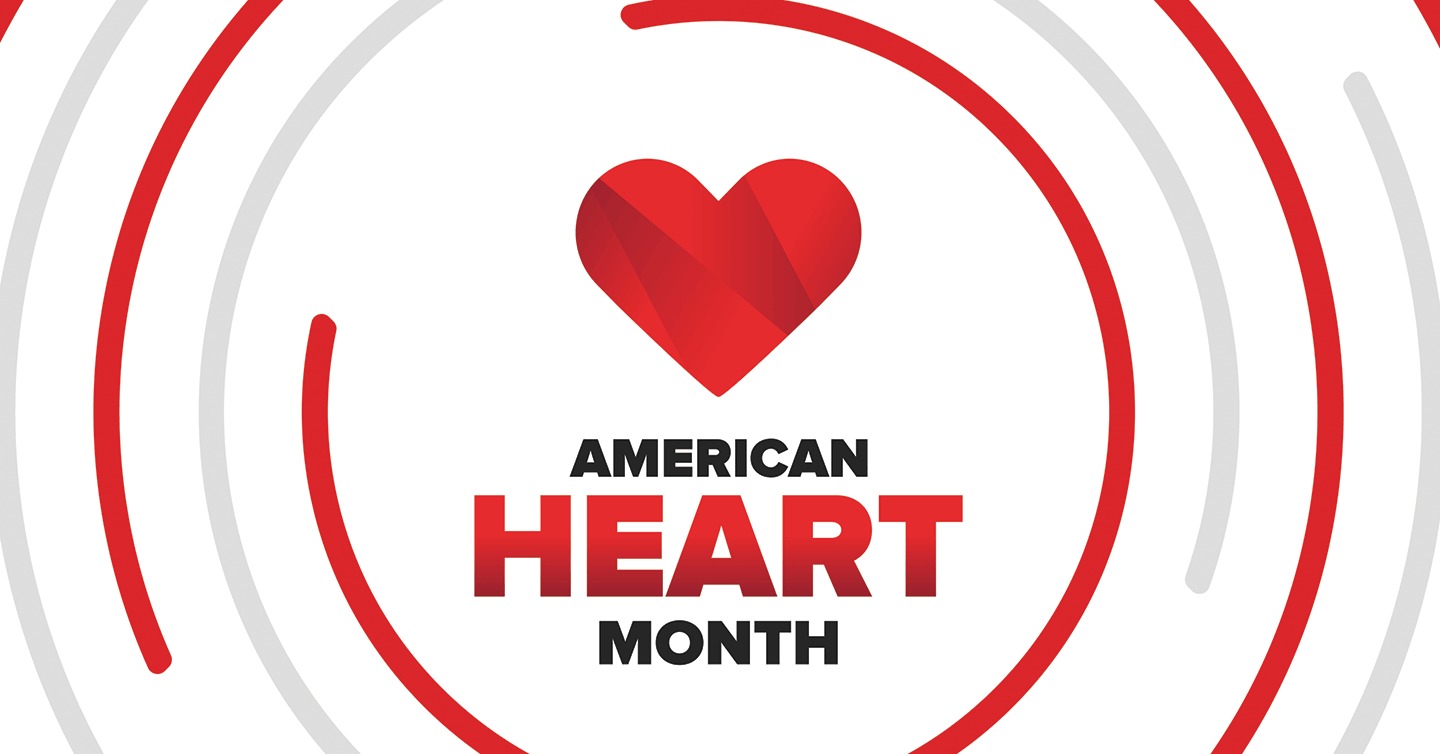February is American Heart Health Month

Heart Disease and Heart Health Myths and Facts
February is American Heart Health Month. Beyond the shiny pink balloons of Valentine’s Day, it’s an important time to think about hearts.
Heart disease continues to be the leading disease resulting in death among Americans. What is heart disease? Is everyone at risk for heart disease? What are the facts?
The American Heart Association has compiled some common myths about heart disease.

Myths About Heart Health and Heart Disease
1. “I’m too young to get heart disease.”
FACT: Lifestyle choices we make affect our future. Risk factors such as obesity, type 2 diabetes and a sedentary lifestyle increase the risk for heart disease. Research shows plaque can start accumulating in arteries as early as childhood and adolescence. In fact, heart disease is becoming more common at a younger age, so everybody should be mindful of their own risk.
2. “I’d know if I had high blood pressure because there would be warning signs.”
FACT: High blood pressure is often called the “silent killer” because there are normally few, if any, symptoms. An annual visit to the doctor and regularly checking blood pressure is vital in diagnosing high blood pressure. Early diagnosis and treatment can be a literal lifesaver, reducing the risk of catastrophic failure and minimizing complications such as stroke or heart attack.
3. “I’ll know when I’m having a heart attack because I’ll have chest pain.”
FACT: No two people are the same. Some people experience very subtle symptoms when they have a heart attack. Symptoms may include shortness of breath, nausea, lightheadedness, sweating, and slight pain in one or both arms. If you are unsure – call 911 immediately.
4. “Diabetes won’t affect my heart.”
FACT: Managing your diabetes can reduce your risk or delay the development of heart disease. Risk factors that contribute to diabetes also increase your risk of heart disease. Simple lifestyle changes such as making healthier food choices, embracing a heart-healthy diet and increasing your activity level can help decrease that risk.
5. “Heart disease runs in my family, so there’s nothing I can do to prevent it.”
FACT: It’s true that people with a family history of heart disease are more at risk. That risk, however, can be significantly reduced by getting more active, managing your blood pressure and weight, eating a healthy diet, controlling your blood sugar and quitting tobacco products.
6. “I don’t need to have my cholesterol checked until I’m middle-aged.”
FACT: The American Heart Association recommends people 20 and older should have their cholesterol level checked every five years. Consult with your personal doctor regarding what approach is best for you.
7. “Heart failure means the heart stops beating entirely.”
FACT: With heart failure, the heart is still working but it is not pumping efficiently. People who suffer heart failure may experience shortness of breath, irregular heartbeat, swelling in the feet and ankles, or persistent coughing and wheezing. Providers may use medications called “beta-blockers” which manage abnormal heart rhythms for at least six months after a heart attack. Such medication can also prevent a second heart attack. Only your doctor can determine if a beta-blocker medication is a good option for your individualized heart health.
8. “The pain in my legs must be a sign of aging. I’m sure it has nothing to do with my heart.”
FACT: Pain in your leg muscles could be something called peripheral artery disease (PAD), which is a result of plaque blocking the arteries in your legs. PAD is a serious condition and increases your risk of stroke. If you have symptoms of PAD, talk to your doctor as soon as you are able.
9. “I should avoid exercise after having a heart attack.”
FACT: Always consult with your doctor before beginning an exercise regimen. Research shows that people with heart disease who make lifestyle changes, such as regular physical activity, live longer. Talk to your doctor about the value of a cardiac rehabilitation program in getting healthy and maintaining heart health.
Keep Your Heart Healthy this February and Beyond
For more information or questions regarding heart disease, contact the Network Health quality department at QI@networkhealth.com or call 1-800-826-0940.



